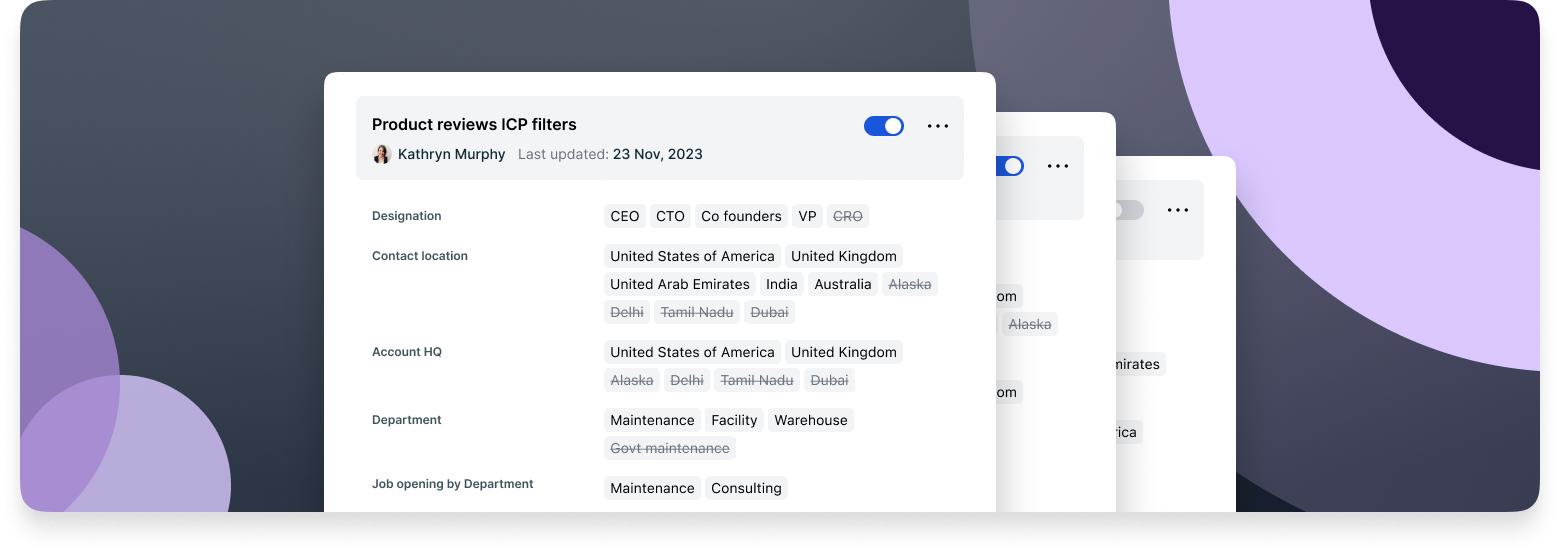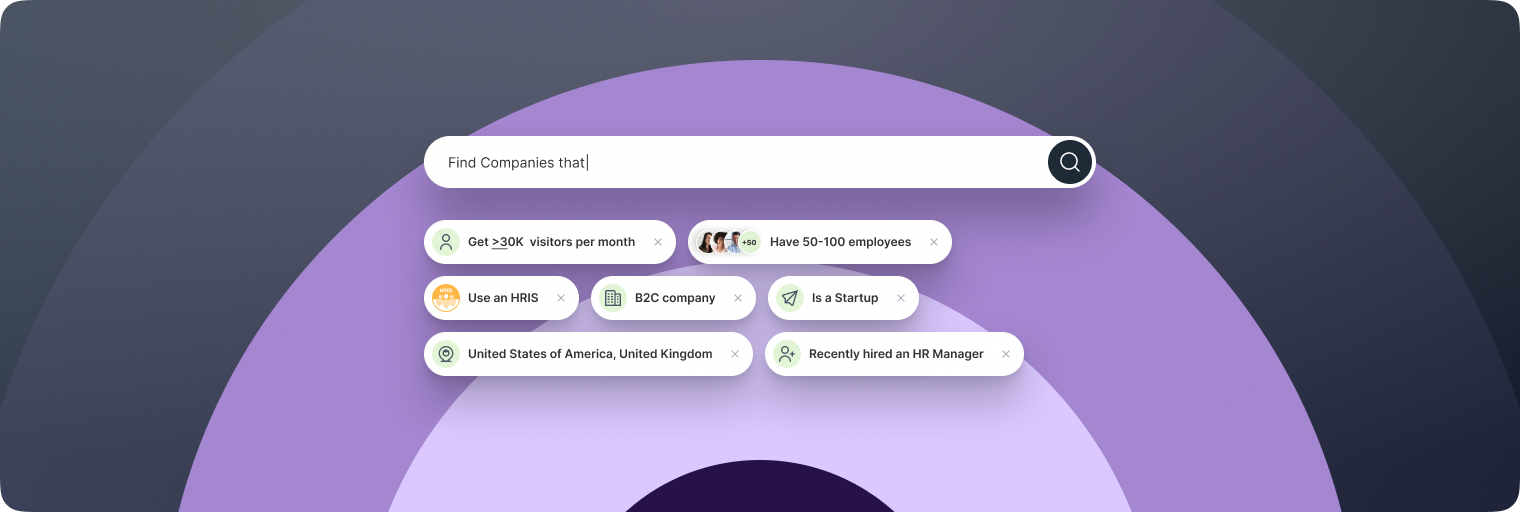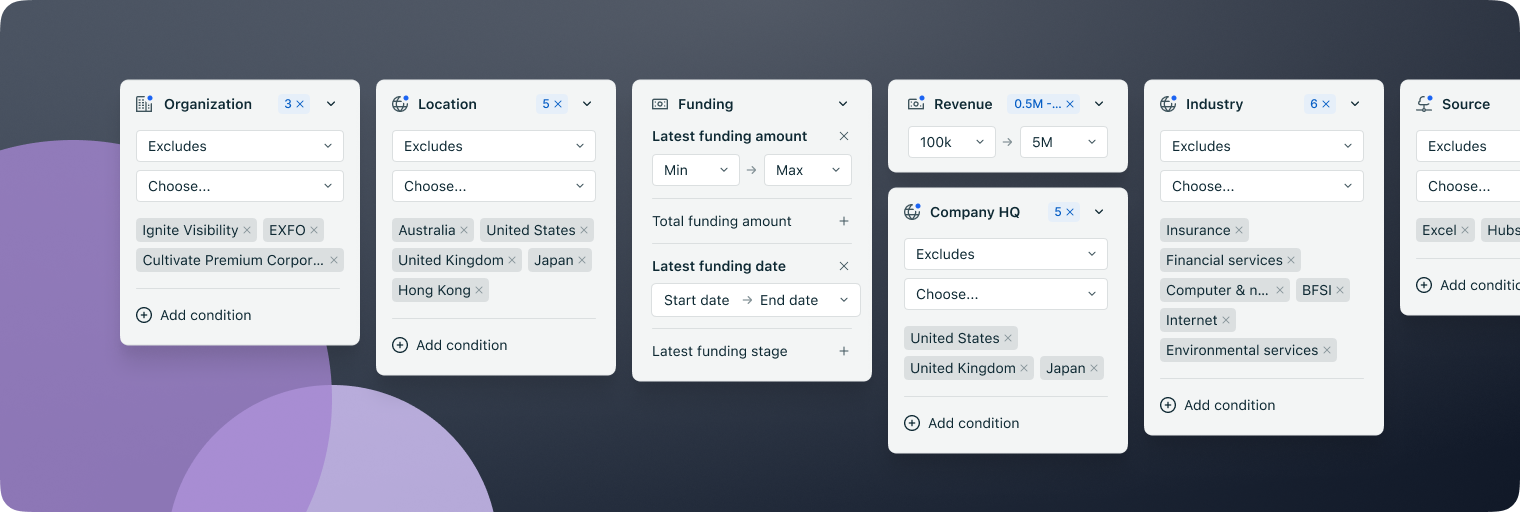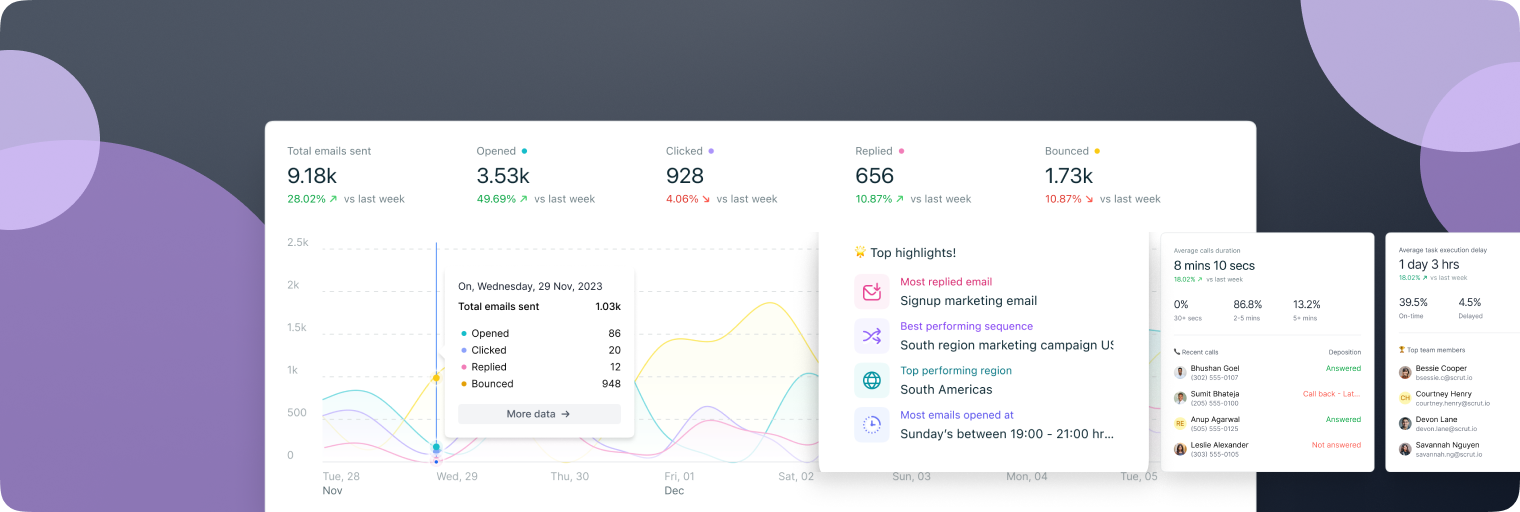Target the right accounts at the right time
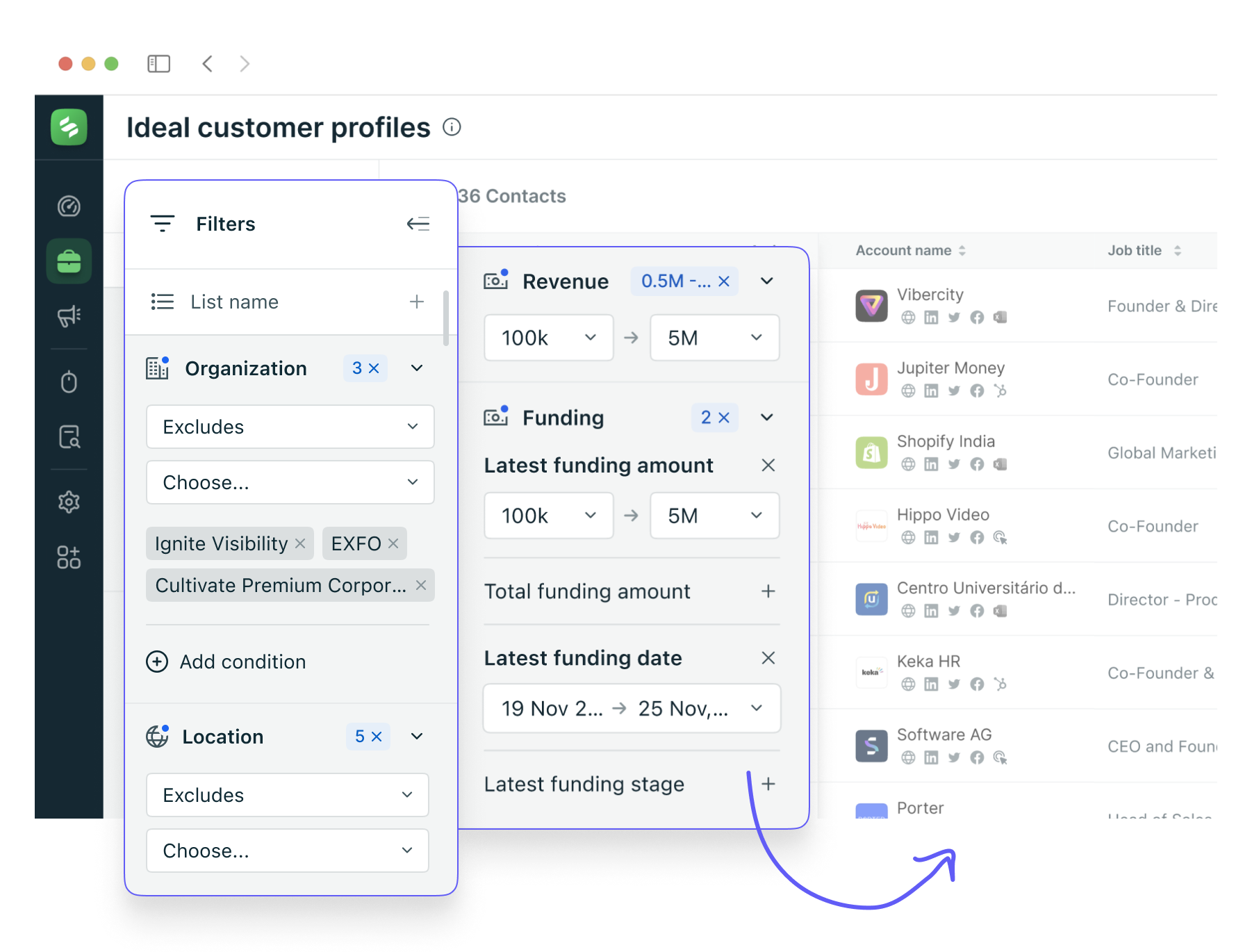
AI-powered advanced ICP analysis
Create highly-targeted account lists
Identify your ICP's behaviour
Purchase history: What products or services is your target audience buying, and how frequently?
Keyword search: What keywords are they searching for?
Engagement with marketing campaigns: How do they interact with your content? Do they click on ads, or attend webinars?
Website behaviour: What pages do they visit, and how long do they stay?
Social media interactions: Are they active on social platforms, and how do they engage with brands?
Competitor analysis: Are they engaging with your competitors, and what is the primary source of their engagement?
Detect purchase patterns
Buying triggers: What factors prompt your prospects to make a purchasing decision?
Buying cycle: How long does it take your ICP to move from initial consideration to making a purchase?
Classify key decision-makers
Job title: Know the specific role of your prospects within their organization.
Responsibilities: Identify the tasks and challenges are they responsible for addressing.
Decision-making authority: Classify prospects based on their authority to make purchasing decisions.
Challenges your ICP face
Pain points: Identify the exact challenges your prospects face in their businesses and offer customized solutions to target each of their pain points.
Goals and objectives: Understand what business goals and objectives your ICP is striving to achieve, and develop tailored campaigns.
Obstacles to success: Analyze market strategies to figure out what works and what doesn't in your ICP's operative domain.
Discover technology stack
Tech stack: Know the tools, software, or technology platforms your ICPs use in their business operations.
Software preferences: Understand if your ICPs are early adopters of technology, or if they prefer established solutions.
Understand org dynamics
Industry: Understand the unique needs and trends shaping the industry ecosystem.
Company size: Tailor solutions to accommodate the diverse structures and capacities of businesses.
Revenue & funding: Customize offerings to align with financial capabilities and investment strategies.
Geographic location: Adapt strategies to suit the cultural, economic, and regulatory nuances of different regions.

